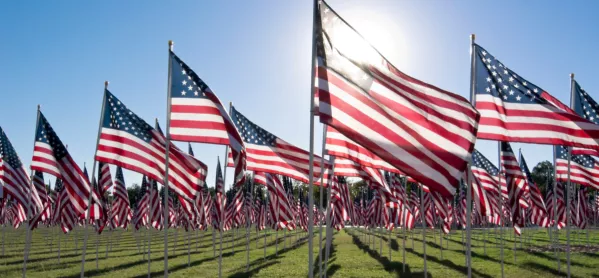- Home
- What does Memorial Day mean to students?
What does Memorial Day mean to students?

Memorial Day weekend is my favorite few days of the year. I surround myself with friends and family, and I’ve got the whole summer ahead. But even though I gladly partake in typical beer and burger festivities, there are always quiet moments when I wish more of us-including me-devoted more of our holiday to remembering. Remembering is a form of honoring: To be remembered is the very least that those who have given everything to our nation deserve.
Because I remember the sacrifices of American service members, I smile nonstop through Memorial Day weekend. I smile knowing that our founders (all of them, not just the Founding Fathers) hung together, not apart. I smile for the Union, which nudged our nation closer to its ideals. For those who defeated tyranny and dictatorship. For those who died trying to bring the freedoms we take for granted to others. I smile when I think of what could be, but for today’s service members; you’ll see me grinning when I’m stuck in traffic to honor those who enable me, a woman, to drive.
But I wonder, give the curriculum narrowing in elementary schools and the decline of the liberal arts in higher education, just how much remembering the average young American could do.
What does Memorial Day mean to them? Most youth likely have a general understanding, but is that enough? Not for me. To honor soldiers’ sacrifices, we must remember the details of what they were fighting for, why, where, under what conditions, against what odds. Research shows that most of our youth do not know these things. On the most recent National Assessment of Educational Progress in U.S. History, 55% of 12th graders scored below basic. Lest you think that’s a high bar, here’s now the basic level is described:
Twelfth-grade students performing at the Basic level should be able to identify the significance of many people, places, events, dates, ideas, and documents in U.S. history. They should also recognize the importance of unity and diversity in the social and cultural history of the United States and have an awareness of America’s changing relationships with the rest of the world. They should have a sense of continuity and change in history and be able to relate relevant experience from the past to their understanding of contemporary issues. They should recognize that history is subject to interpretation and should understand the role of evidence in making a historical argument.
That most students-even as they are becoming eligible to vote, be jurors, and join our armed forces-are not performing at this level is shameful. Worse, there’s reason to believe that many Americans are very from this low bar. A survey conducted last year found that only half of American adults could correctly identify the decade in which the US Civil War occurred.
The Common Core standards for English language arts and literacy are designed to diminish such ignorance. But they call for greater knowledge for the sake of increasing reading comprehension, which requires very broad (but not necessarily deep) background knowledge of the world; a close reading of Lincoln’s Second Inaugural Address is a good start, but it won’t suffice. A more reasonable place to turn is social studies standards. Sadly, the hodgepodge of documents I find (including a damning review of state standards, a proprietary set of national standards, and a new inquiry framework) only shows me why students know so little history. Inquiring may or may not result in learning. The quality of the questions and the rigor of the responses both matter.
This Memorial Day, I’ll have Jefferson’s warning ringing in my ears: “If a nation expects to be ignorant and free, in a state of civilization, it expects what never was and never will be.” But I’ll still be smiling, for Lincoln gave us our charge and I have the privilege of working to build our collective memory:
It is for us the living … to be dedicated here to the unfinished work which they who fought here have thus far so nobly advanced. It is rather for us to be here dedicated to the great task remaining before us-that from these honored dead we take increased devotion to that cause for which they gave the last full measure of devotion-that we here highly resolve that these dead shall not have died in vain-that this nation, under God, shall have a new birth of freedom-and that government of the people, by the people, for the people, shall not perish from the earth.
Let us the living begin by ensuring that all our youth know why we celebrate Memorial Day. Then they’ll be smiling too.
Lisa Hansel is director of Knowledge Matters, a campaign to restore wonder and excitement to the classroom by building broad knowledge in science, social studies, and the arts. Previously, she was the editor of American Educator, the magazine of education research and ideas published by the American Federation of Teachers.
Want to keep up with the latest education news and opinion? Follow TES USA on Twitter and like TES USA on Facebook.
Keep reading for just £1 per month
You've reached your limit of free articles this month. Subscribe for £1 per month for three months and get:
- Unlimited access to all Tes magazine content
- Exclusive subscriber-only stories
- Award-winning email newsletters

